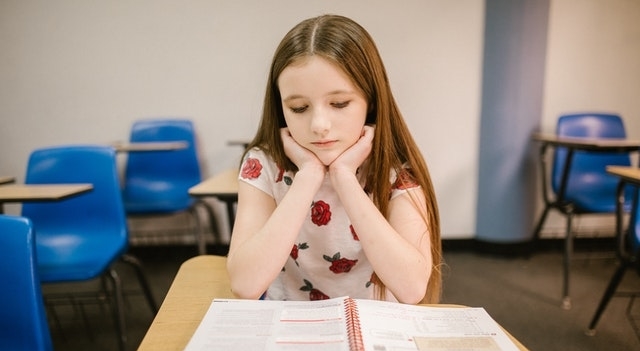Does your child struggle to see distant objects clearly? Myopia, or nearsightedness, is an increasingly common condition affecting a growing number of school-aged children. Myopia can severely impact both children’s academic performance as well as their overall self-esteem and confidence. As your child return to school, it is essential to address myopia progression and promote their healthy eye development.
Learn about some advanced insights and practical tips for incorporating myopia control strategies into your child's daily school routine with help from Dr. Carole R. Burns at The Solution Center.
Does your child have myopia? Help them achieve their potential and book a consultation at The Solution Center in Westerville today!
Understanding Myopia Progression
Near Work and Screen Time
Excessive near work, such as reading or studying, or using digital devices can lead to myopia and its progression. Therefore, incorporating screen time breaks into the study routine can help reduce the risk of myopia and eye strain. Encourage your child to take regular breaks when using digital devices.
Lack of Outdoor Activity
Reduced outdoor activities are associated with higher myopia rates. Natural light is essential for your child's healthy eye development, so it's crucial to encourage them to participate in daily outdoor activities. Outdoor time during the school day and incorporating outdoor activities into study and homework time can help ensure healthy vision.
Advanced Myopia Control Methods
The following advanced myopia control methods available at The Solution Center in Westerville can significantly help students manage myopia during the school year.
Orthokeratology (Ortho-K)
Ortho-K is a non-surgical method to temporarily correct myopia. A custom-fit contact lens is used to flatten the cornea, improving focusing power. Ortho-K treatment can slow down myopia progression and improve visual acuity. Proper fittings and lens care are essential for the success of Ortho-K treatment.
Multifocal Contact Lenses
Multifocal contact lenses are another option for treating myopia. These lenses work by altering the focusing of light on the retina, slowing down myopia progression and maintaining clear vision. Additionally, they can improve peripheral vision and reduce the risk of eye strain.
Atropine Therapy
Atropine eye drops are a pharmacological treatment for myopia control. Atropine therapy works by dilating the pupil and temporarily paralyzing the eye's focusing mechanism. Regular monitoring and consultation with an eye care professional are important for effective atropine therapy.
Incorporating Myopia Control Strategies into the School Routine
There are a few strategies you can implement to prevent or manage myopia in your child.
Optimal Lighting
Good lighting conditions are essential for studying and reading. Optimize lighting for your child’s school work by using adjustable and dimmable lighting systems.
Visual Breaks and Outdoor Time
Visual breaks during intense near-work and outdoor time can reduce eye strain, promote healthy vision, and slow myopia progression. Incorporate scheduled outdoor breaks and outdoor activities into your child’s study or homework time.
Regular Eye Exams and Collaboration
Regular comprehensive eye exams are essential for early detection and management of myopia. Collaboration between parents, teachers, and eye care professionals can help implement myopia control strategies effectively. On-going communication and monitoring are essential.
Advanced Myopia Control for Students in Westerville
Incorporating myopia control strategies into your child's daily school routine can assist with healthy eye development and help reduce the progression of their myopia. Try to implement proactive measures and control strategies within your child's school and home study environment, and prioritize their eye health to help them reach their full potential.
For professional advice, contact The Solution Center in Westerville to arrange a consultation today.

